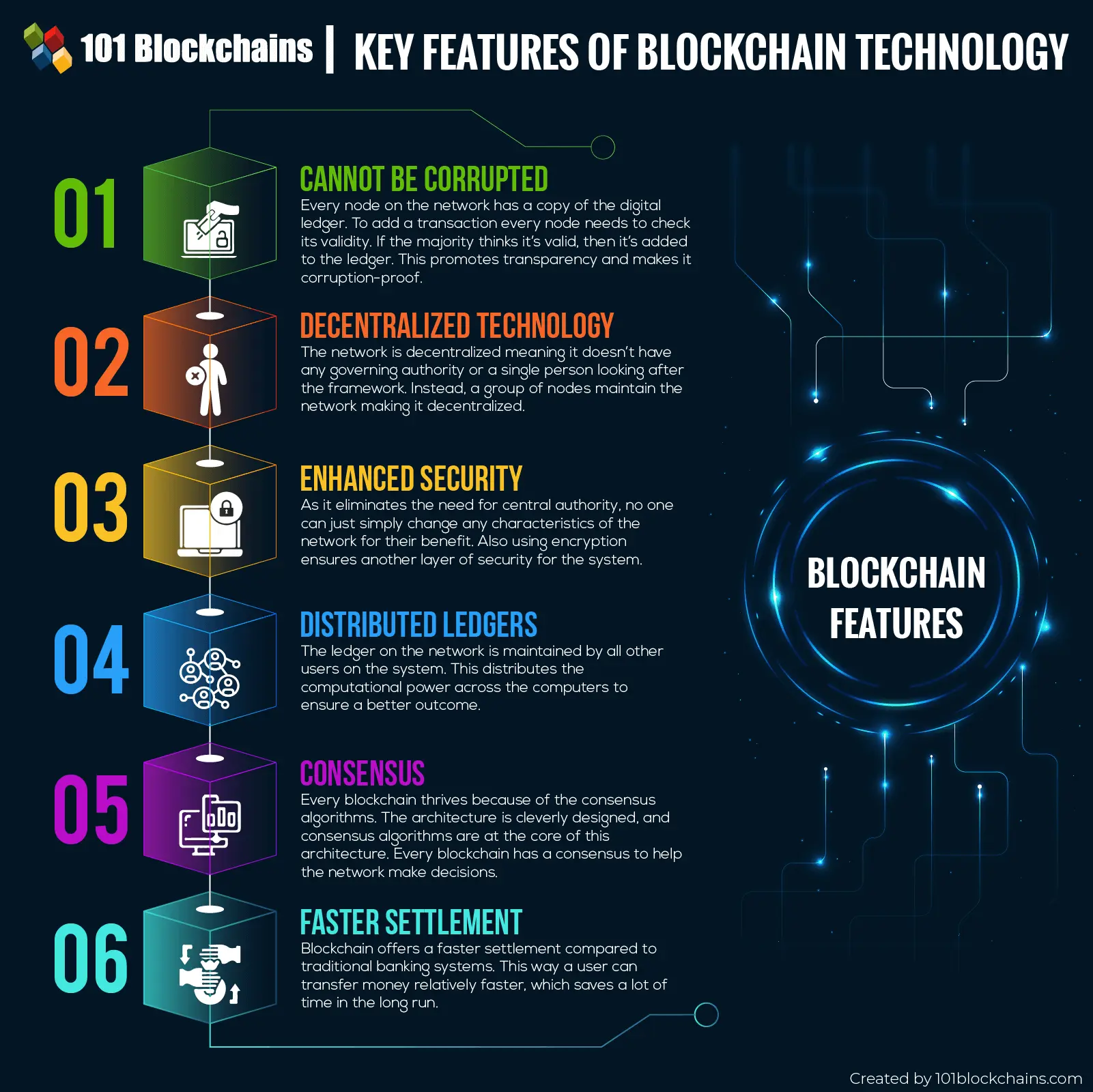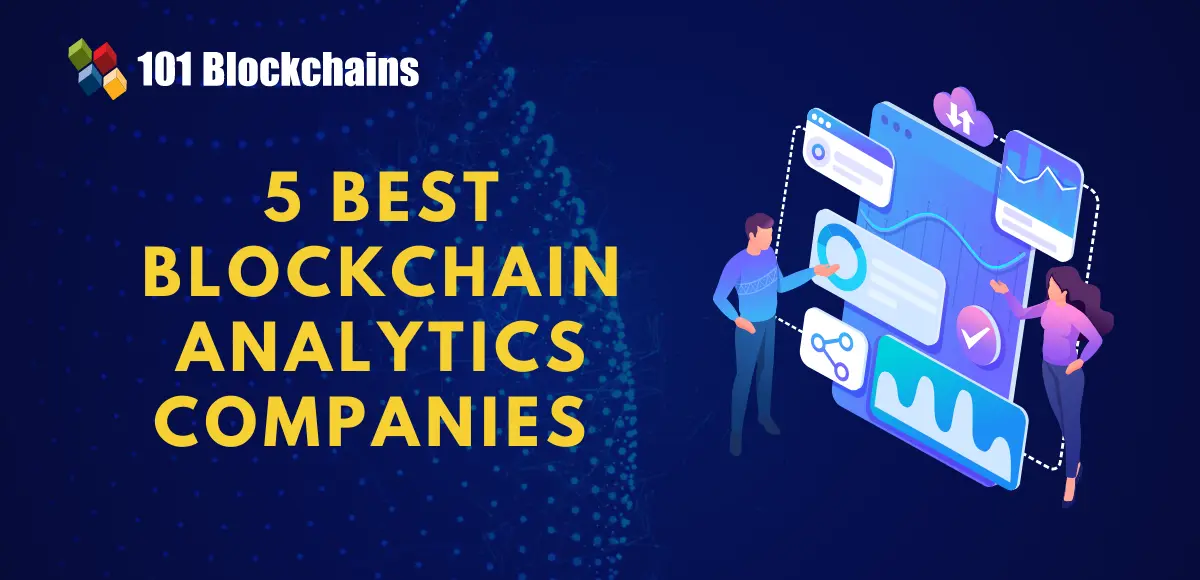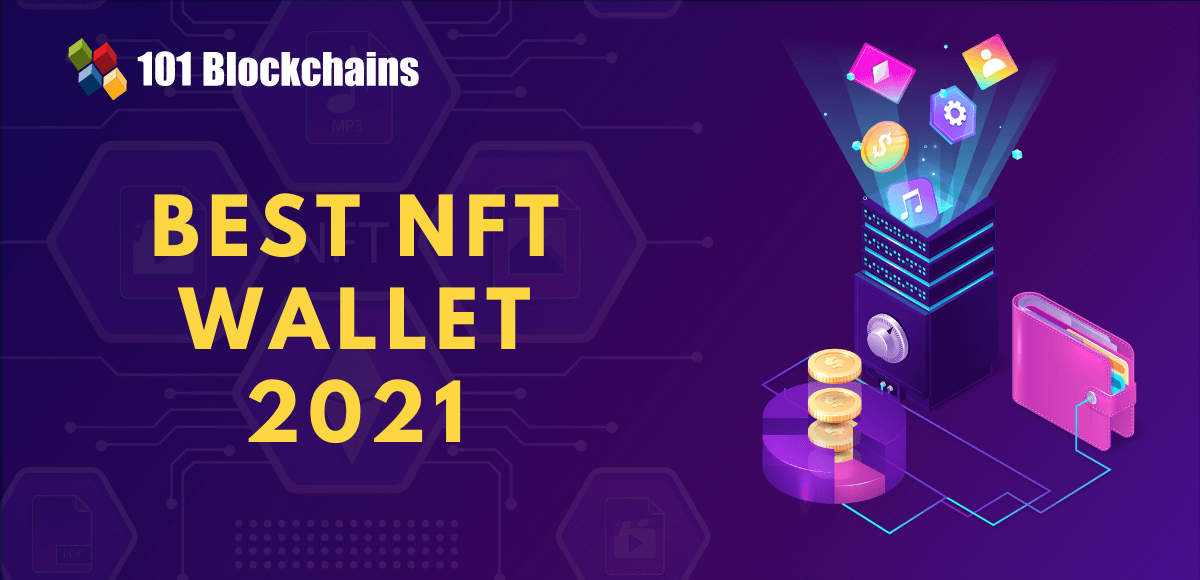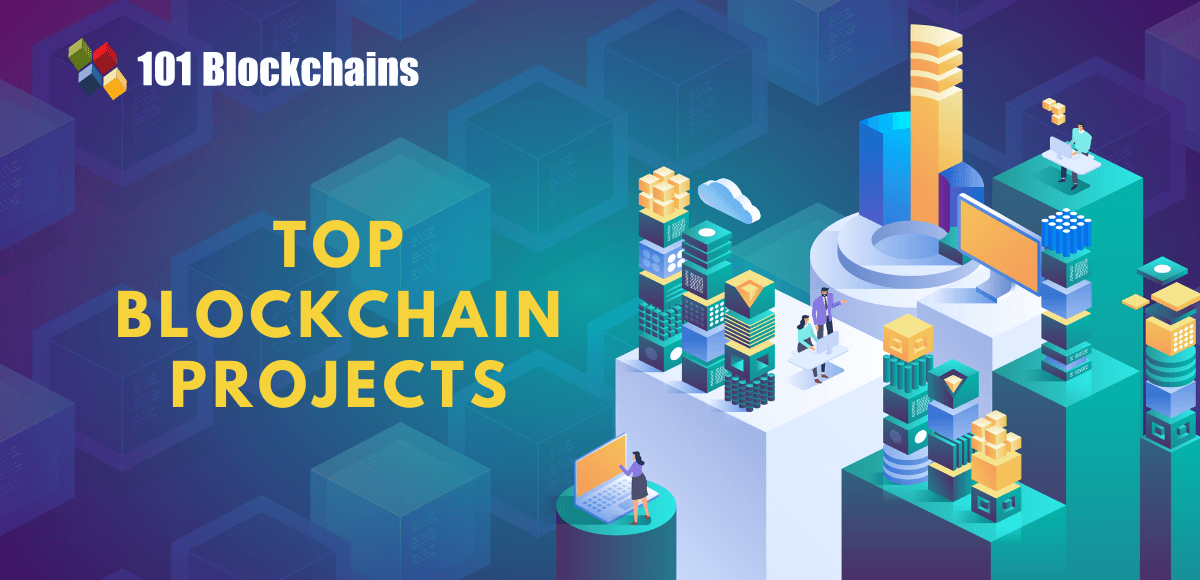Learn how blockchain truly works, master key definitions, and uncover what makes smart contracts so "smart." Dive into the fundamentals, gain valuable insights, and start your blockchain journey today!
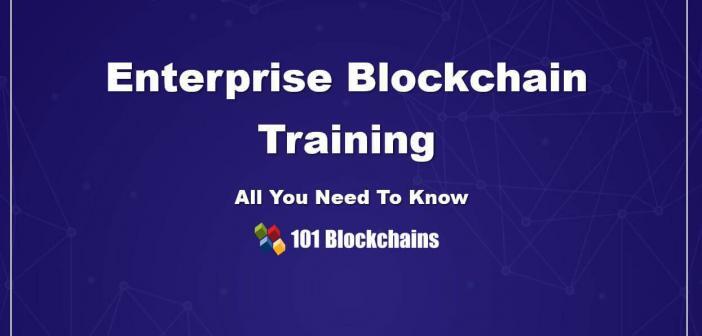
- Opinions
101 Blockchains
- on January 31, 2019
Enterprise Blockchain Training
Enterprise blockchain training concerns itself with business entities enlightening their staff about the potential of enterprise blockchain in business. As at now, there are few businesses that have proper structures in place to facilitate the adoption of this new technology. Given the enormous potential that the technology holds toward faster, more efficient and more transparent business operations, it is imperative that every organisation finds time to train its staff on the subject.
Notably, enterprise blockchain training focuses on the application of blockchain technology in enterprises. This involves the use of technology to scale businesses as well as cater to customer needs better. Interestingly, the technology is just a decade old but it leading revolutions in almost all sectors of global business. As such, it is prudent that enterprises get to know what the technology is, and how they can best adopt it.
Blockchain technology is the central catalyst in the ongoing digital transformation. Already, global institutions like Goldman Sachs bank, IBM, Microsoft and even shipping lines like Maersk are integrating the technology in their operations. For instance, Maersk partnered with IBM to create a supply chain management solution based on blockchain and subscribers are flocking to it.
Notably, users are able to monitor the movement of goods along the supply chain and interactions are peer-to-peer. This implies that there is no place for mountains of paperwork regular in the traditional way of managing supply chains over shipping lines. In particular, such benefits represent a huge market opportunity for the technology, and the more reason enterprises should train their staff on it.
Build your identity as a certified blockchain expert with 101 Blockchains’ Blockchain Certifications designed to provide enhanced career prospects.
Key features of blockchain technology
For blockchain to be such an instant hit, there must be something special about it that the wider society finds fascinating. Notably, these are the key characteristics of the characteristics of the technology, which are groundbreaking. They include;
-
Decentralization/Consensus
Up until blockchain, interactions on the internet were on the basis of client vs server. This is to say that the traditional structure of the internet has one primary point (the server) that controls what happens in the ecosystem. If something goes wrong in the server, or the server itself malfunctions, the whole ecosystem will breakdown shutting out all the clients that rely on the server.
On the contrary, a blockchain platform is, basically, a collection of nodes that are both servers and clients. These nodes have equal privilege in terms of what they can do, like the power to validate transactions. As such, all the nodes are peers which interact from the same level of significance and privilege. Notably, for any transaction to complete on the platform, there must be consensus among the peers concerning its validity and truthfulness.
This decentralized nature of the blockchain implies that there is no central point of authority. Interestingly, if one node in the ecosystem gets compromised, all the other nodes will maintain the normal flow of activities. This is to say that if a hacker gained access to one node, the other nodes will remain unaffected. Therefore, the platform is hack-proof.
-
Immutability
A blockchain platform is in form of a ledger that is visible to all the nodes on the platform. This is why people sometimes refer to Blockchain Technology as a Distributed Ledger Technology (DLT). Interestingly, this distributed nature of the ledger implies that once a participant enters information on the platform, the information is visible to all the nodes. Every node on the platform will have a copy of the transaction information.
Interestingly, one would need the permission of all the participants on the platform to be able to alter any information already recorded and shared among the peers. This is to say that no single entity can alter information entered without obtaining the consensus of the platform. As a result, information is secure.
-
Chronological order of events
Once a transaction completes, the information is stored in a single block complete with an immutable time stamp. Interestingly, these blocks of information form a chain where each block contains a hash of the previous block. Blockchain gets its name from this connectedness of the blocks of information.
The connected blocks offer a chronological account of all the activities on the platform since inception. Interestingly, this is one of the major characteristics that make DLT stick out as genius. Transparency and authenticity is a problem in today’s age of information. The ease of availability of information poses threats to sectors like the intellectual property. In this regard, the technology can go a long way in determining the originality of works of intellect.
Enterprise blockchain
Since blockchain technology broke onto the international scene, Bitcoin was the only recognizable killer application. However, widespread adoption resulted in corporations getting interested in the technology. Basically, enterprise blockchain is the case where institutions use blockchain technology for various uses, both commercial and internal.
Enterprise blockchains are already disrupting the business space. Notably, there are numerous use cases for blockchain in the enterprise systems which various entities are experimenting. Interestingly, the use cases are both for horizontal applications and vertical applications. Already, there are enterprise blockchains that are focusing their energy on a number of specific verticals and horizontal applications. The use cases include supply chain management, data sharing, verification of the originality of products, cross-border payments, Personal Health Records (PHR) and so on.
In particular, these enterprise blockchains bring together various institutions that share blockchain-focused interests. Like earlier noted, blockchain platforms enable all the participants to view and affect the information present in the data base. Such are called public blockchains. However, enterprises are usually careful about the privacy of their activities and data. As such, developers came up with blockchain platforms that require permission to access, hence permissioned/private blockchains.
Private Blockchains incorporate carefully picked entities that come together to create nodes that participate in the ecosystem. This way, each node on the platform is known and trusted, hence trusted nodes. Enterprise Ethereum Alliance (EEA) is a good example of such a private blockchain. Notably, EEA comprises of 500 participants and where the majority are companies in the global S&P 500 category. A few prominent members include Microsoft, HP Enterprise, Cisco, JP Morgan, Samsung, Intel, and Accenture and so on.
Start your blockchain journey Now with the Blockchains Fundamentals Free Course
Key features of enterprise blockchain
It is obvious that there already enterprise softwares that institutions are already using. However, there is a clear superiority of enterprise blockchain in most of the key areas that the institutions deal with. For this reason, they are gradually moving to the new technology. Here, we shall consider some of the key features of enterprise blockchain.
-
Resilience to failures
Like earlier discussed, blockchain platforms consist of various nodes where each operates independently and with equal privileges as all the other nodes. Further, enterprise blockchains mostly run on private blockchains which consist only of trusted nodes. Notably, the database on the platform is available to all the trusted nodes in the ecosystem. As such, if one node failed due to idiosyncratic reasons, the other nodes will continue functioning at their normal. Contrary to centralized platforms, once the server fails, the whole ecosystem becomes non-functional.
-
High performance
Enterprises deal with a lot clients during their service delivery and selling of products. This is to say that they deal with a lot transactions in a day. For instance, Goldman Sachs deals with millions of transactions in a day, which implies that there could be a huge number of transactions per second. In this light, they need enterprise blockchains that are fast enough to handle the transactions per second without experiencing too long latency and network collapse.
This is one sector that enterprise blockchains are still lacking. For instance, Hyperledger Fabric is among the most popular enterprise blockchains today. However, the platform registers only 3,500 tps, and with a network latency of about one second. Looking at the metrics, it is clear that the platform cannot adopt all functions of an institution like Goldman Sachs.
-
Privacy
Privacy and data security is one of the major selling points of enterprise blockchains. Particularly, the private blockchains only allow trusted nodes to participate in the ecosystem.
-
Interoperability
Traditional softwares use application programming interface (API) to interact effectively. As a result, the softwares have to first appear as two silos which rely on the APIs for reconciliation. On the contrary, enterprise blockchains provide the opportunity to by-pass the APIs and connect them directly. This is because there are interoperability nodes that bridge the various enterprise blockchains. The beauty of the interoperability nature of the enterprise blockchains is that one can connect as many platforms as possible without serious glitches.
Curious to learn about blockchain implementation and strategy for managing your blockchain projects? Enroll Now in Blockchain Technology – Implementation And Strategy Course!
Examples of enterprise blockchain platforms
SAP
Given the enormous potential of enterprise blockchain, various companies took up the challenge of refining it to the point that it will give them an edge in the market. For instance SAP is working a number of blockchain-based services that facilitate adoption of enterprise blockchain. Notably, the firm has a three-pronged enterprise blockchain program targeting institutional clients.
In particular, the first fork targets business processes with a specific interest on the use cases of blockchain technology. Further, the solution facilitates integrate the technology in the specific areas impacted by blockchain. As a result, clients can be certain concerning the quality of their data as well as its integrity, a property that draws from the fundamental characteristics of blockchain.
SAP has unparalleled experience in the networks sector. Therefore, it is not surprising that it is working on how blockchain can support the core business of network clients. This is in realization that the network is critical to the optimal functioning enterprise blockchain. Interestingly, this solution further helps SAP to refine the potential of Blockchain-as-a-service (BaaS). With this solution clients can create their own applications and host them on SAP’s cloud platform.
Hewlett Packard Enterprise (HPE)
Interestingly, SAP launched a global consortium, SAP Cloud Platform, for exploring and developing blockchain services. The platform includes HPE which has two major projects that seek to make blockchain enterprise-grade. One of the projects is Mission Critical Distributed Ledger Technology. This is a joint project with R3 where the solution runs on R3’s Corda Enterprise.
Basically, Mission Critical Distributed Ledger Technology enables users to execute blockchain-focused tasks in environments that have zero tolerance for fault. Notably, the solution is an apt fit for enterprise since there is a massive opportunity for scalability.
Further, HPE is pursuing HPE Pointnext Blockchain Services which is a platform that emulates SAP’s BaaS. In essence, this service facilitates the integration of blockchain in enterprises, especially for firms that want to experiment with various use cases. Notably, HPE Pointnext takes users through all key aspects of blockchain including, security, operations, platform functionality, compliance, governance and so much more.
ORACLE
ORACLE is among the technology giants that are blazing the trail in implementation of Blockchain-as-a-Service (BaaS). Notably, the firm has four projects targeting the utilization of blockchain in the enterprise setting. In particular, the company launched four main applications that target enterprises which have interest in blockchain.
The first project is Intelligent Track and Trace which leverages blockchain to monitor the movement of products along the supply chain. Notably, the solutions creates a kind of digital paper trail that records activities at each point of production and supply. Therefore, end-users are able to follow the process and which enhances transparency.
Also, ORACLE is working on Lot Lineage and Provenance which verifies the authenticity of products. Further, Intelligent Cold Chain enhances food safety by monitoring the process of production to the retailer. Lastly, Warranty Usage and Tracking reduces legal liabilities by providing an undisputable record for rented products.
Aspiring to make a lucrative career as a blockchain engineer but not sure how? Check the detailed guide Now on How To Become A Blockchain Engineer
Enterprise blockchain training
Clearly, blockchain is revolutionary. The technology is disrupting industries in a much-unanticipated way. As such, it is clear why enterprises have a lot of interest in the technology. Interestingly, as more and more enterprises endeavor to establish a relationship with the industry, the need for blockchain experts increases. This trend is already underway.
Blockchain enthusiasts who need enterprise blockchain training will have to sign up for an enterprise blockchain course. Here, they will learn the fundamental principles of the technology as well as how corporations and other enterprises can better integrate the technology into their systems.
Interestingly, institutions of higher learning are already taking up the challenge to establish dedicated courses that focus on enterprise blockchain training and the technology in general. This is, however, in acknowledgment that the technology is fairly new and there are no established guidelines for its pursuit.
For instance, Oxford University, in conjunction with Said Business School, is offering a Certificate in Blockchain Strategy. This is some kind of corporate blockchain training where the participants will gain insights into blockchain technology and how it will affect organizations in the future. Further, the institutions have in place frameworks that will guide executives in making strategic decisions concerning enterprise blockchain.
Interestingly, the enterprise blockchain course is available via online platforms. There are numerous such platforms that offer certification for enterprise blockchain training. The Open University of the United Kingdom is also offering training in technology. Notably, the institution is a portal of numerous blockchain-focused courses.
Start learning Blockchain with World’s first Blockchain Skill Paths with quality resources tailored by industry experts Now!
Advantages of online enterprise blockchain training
Online enterprise blockchain training has a few, and quite significant, advantages compared to attending a physical institution. Some of the advantages include:
-
No time restrictions, no boundaries
Taking an enterprise blockchain course online is one of the most flexible learning terms out there. Notably, all the engagements happen over the internet and tutors usually pre-record their lectures before posting them on the platform. As such, one is free to access the material in their own time and read.
Further, online platforms are available on any device that can access the internet. This is to say that students can access the course material from anywhere on earth as long as there is internet connection. Further, this implies that there is a lot of convenience in terms of course availability and accessibility.
-
Cost-effective
Online platforms do not require students to pay for such things as textbooks and other miscellaneous fess that students in physical institutions pay. For instance, students taking online enterprise blockchain course will not have to pay for the papers which tutors use to prepare exams and other assessment material.
Further, physical institutions require that one makes a physical appearance in a classroom. If one commutes back and forth on a daily basis, it is clear that a lot of money will go into fare/gas. Furthermore, one will have to buy lunch and other issues that may come up and need money. On the other hand, one might need to stay around school because the institution is far away from school. As such, one will need to get a place to live, which simply implies more costs.
In-person enterprise blockchain training
It is clear that there are already means through which enterprises can have their staff to train without having to attend a physical college. However, it is also apparent that the staff will need a lot of time to achieve full certification in enterprise blockchain. Luckily, there are in-person/instructor-led training sessions that could be handy.
In-person enterprise blockchain training is a bit new in the space but it is proving quite effective. For instance, the 101Blockchains Enterprise Blockchain Training Masterclass is a two day exercise designed for both technical and non-technical individuals. Notably, the training session introduces participants to blockchain as well as outlining how individuals can use it to create value in their organizations.
Over two days, the enterprise training course will challenge attendants to view blockchain as a solution to various problems unique to their organizations. This includes the fundamentals of distributed ledger technology (DLT) and understand the different types of blockchain networks. Notably, the participants will learn about the various terminologies that are unique to players in the blockchain industry.
Also, participants will be taken through the use cases of DLT in various sectors including Healthcare and Government. The highlight of the 101 Blockchains Enterprise Blockchain Training Masterclass is participants engaging in a workshop where trainers will help them establish strategic thinking concerning enterprise design in regard to blockchain technology.
Benefits of the in-person enterprise blockchain training
Like earlier mentioned, it is easy to find a blockchain training course today. However, most of the people that might benefit from the training cannot find the time required to get certification for the courses. In this light, in-person training becomes the most ideal. First, a program like the 101Blockchains Enterprise Blockchain Training Masterclass is only two days long. Here, participants like company CIOs will get a one-on-one opportunity to converse with the instructor.
Secondly, there is maximum attention in in-person training. Notably, the instructor is able to concentrate on one learner at a time and, as such, one will impart as much knowledge as possible in so little time. This personalized attention is also time saving since the learner will only need a few hours in a day with the instructor.
Summary
Blockchain came onto the global scene as the underlying technology for bitcoin. In the initial days, one could not dissociate the technology from the new form of currency that had many central banks worried. However, regulatory and security concerns drove people to testing the technology for other uses. In the last decade, these use cases are adding up exponentially.
However, the major talking point is the usefulness of blockchain to corporations and enterprises. Enterprise Ethereum Alliance (EEA) is evidence that there is enormous interest in the technology by corporations. Enterprise blockchain is just getting traction and is likely to pick up farther as days go by.
Given the unique features of blockchain technology, enterprises are discovering a lot of usefulness for the technology. The data on the network is immutable and peers interact in one-to-one basis and without need of a central authority. Further, transactions over the platform are quite cheap, if any, are instant. Interestingly, these are the features enterprise blockchain training teaches.
Apparently, corporate blockchain training is something successful executives need to navigate the space. Getting enlightened about the technology is quite important because it expands one’s perspective concerning the implementation of the technology in the case of corporations.
Particularly, there are a number of enterprise blockchain courses one can take during the corporate blockchain training. These are blockchain architecture, Blockchain security and Blockchain regulatory environment. Completion of the courses will equip the learner with the necessary skills that will facilitate decision making concerning blockchain integration. Further, the enlightenment the learners receive from the enterprise blockchain training assist them to align company growth efforts with key strengths of the technology.
Start learning Blockchain with World’s first Blockchain Career Paths with quality resources tailored by industry experts Now!
Closing comments
It is impossible to make pronouncements today concerning the future of blockchain technology for the enterprises. This is because there is still a lot of uncertainty that surrounds the technology. Notably, quite a huge number of jurisdictions do not have clear guidelines for the technology. As such, it is impossible to estimate the magnitude of the effects such countries can have on blockchain.
However, the reality is that more and more corporations are exposing themselves to blockchain technology. Interestingly, the companies are looking for ways they can better run their businesses using the potential of the technology. In this light, it is imperative that executives undergo enterprise blockchain training so that they can appreciate both the strengths and weaknesses of the technology. This way, the enterprises can easily align their interests with the strengths of the technology.


